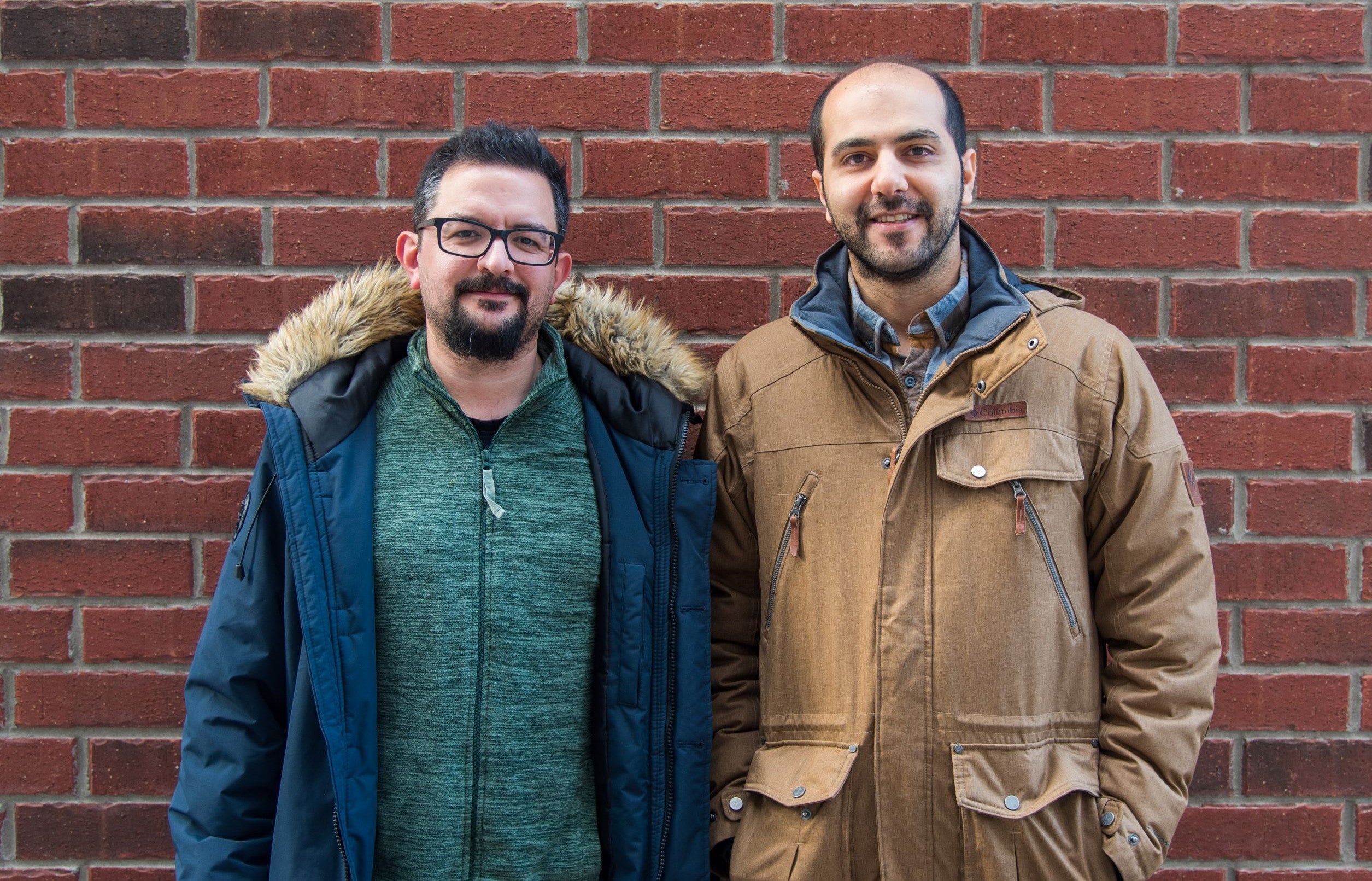The chance to broaden his horizons through a fellowship at Waterloo Engineering has boosted an ambitious researcher as he pursues his goal to develop intelligent therapy robots.
Dr. Milad Nazarahari, who came to Waterloo in 2021 as the recipient of a AMTD Waterloo Global Talent Postdoctoral Fellowship, packed up late last month to take on a new position as an assistant professor of mechanical engineering at the University of Alberta.

Dr. Milad Nazarahari (right) worked at Waterloo Engineering under the supervision of Dr. Arash Arami.
He credited the program, which provides fellows with $75,000 a year for two years thanks to funding from Waterloo alumnus and entrepreneur Calvin Choi (BA ’01), with exposing him to disruptive, high-risk, high-reward research.
“I was able to explore new areas and go beyond what I had done in my PhD,” Nazarahari said.
Working in the lab of Dr. Arash Arami, a professor of mechanical and mechatronics engineering, Nazarahari made good use of the fellowship to work on development of intelligent robotic systems for the rehabilitation of stroke patients and people with spinal cord injuries.
“We want to create technology that can adjust its performance according to the user’s capabilities to maximize the efficacy of therapy,” he said.
Inspired by work at children's hospital
Nazarahari earned undergraduate and master’s degrees in his native Iran, where he developed a passion for biomedical engineering while volunteering with cancer patients in a children’s hospital.
He went on to complete a doctorate at the University of Alberta, before landing the AMTD fellowship, which was created by Choi to attract and support international scholars developing revolutionary expertise and doing disruptive research for the betterment of society.
Nazarahari is inspired by the potential of at-home intelligent robots to make rehabilitation more accessible and affordable, even in remote areas, while also keeping therapists in the loop to make changes or adjustments when required.
For more details about AMTD Postdocs and the process to become an AMTD scholar, please visit AMTD Waterloo Global Talent Postdoctoral Fellowship. Additional funding programs are also available for postdoctoral scholars through the University. Please visit Find postdoc funding for information on the various opportunities.